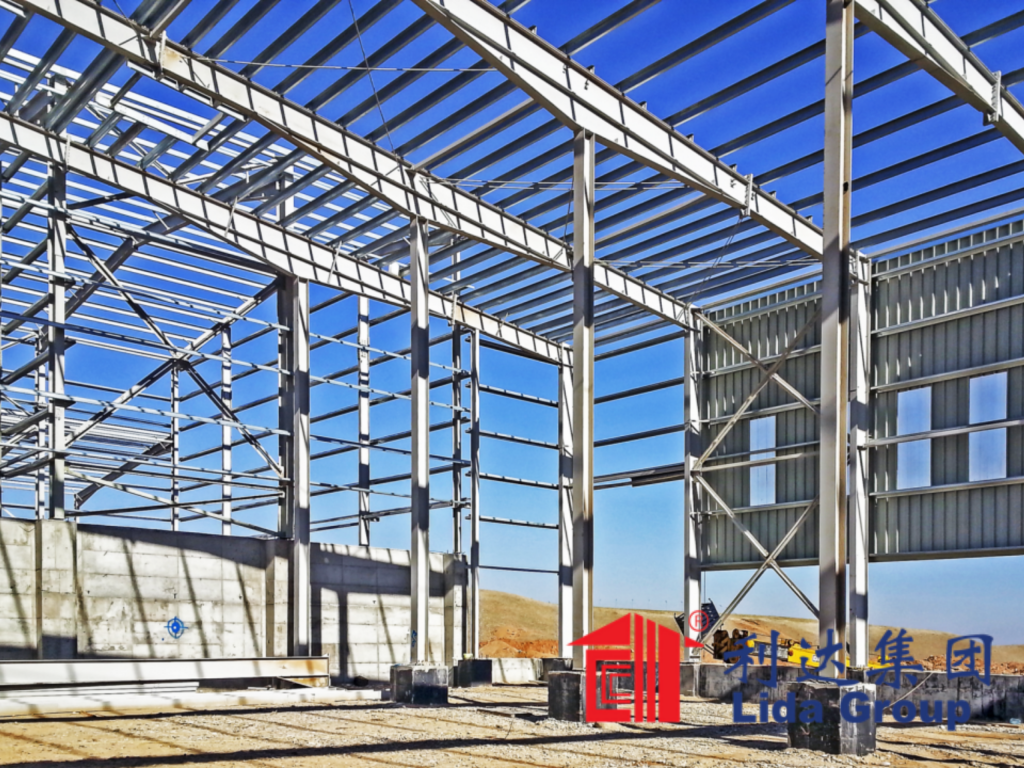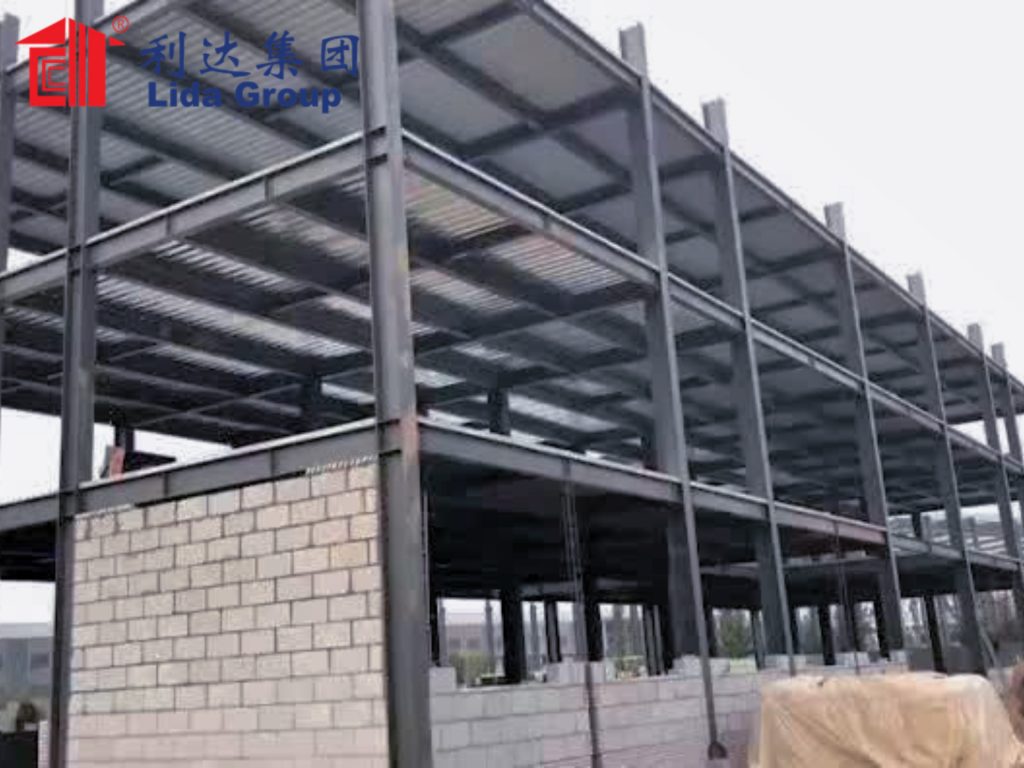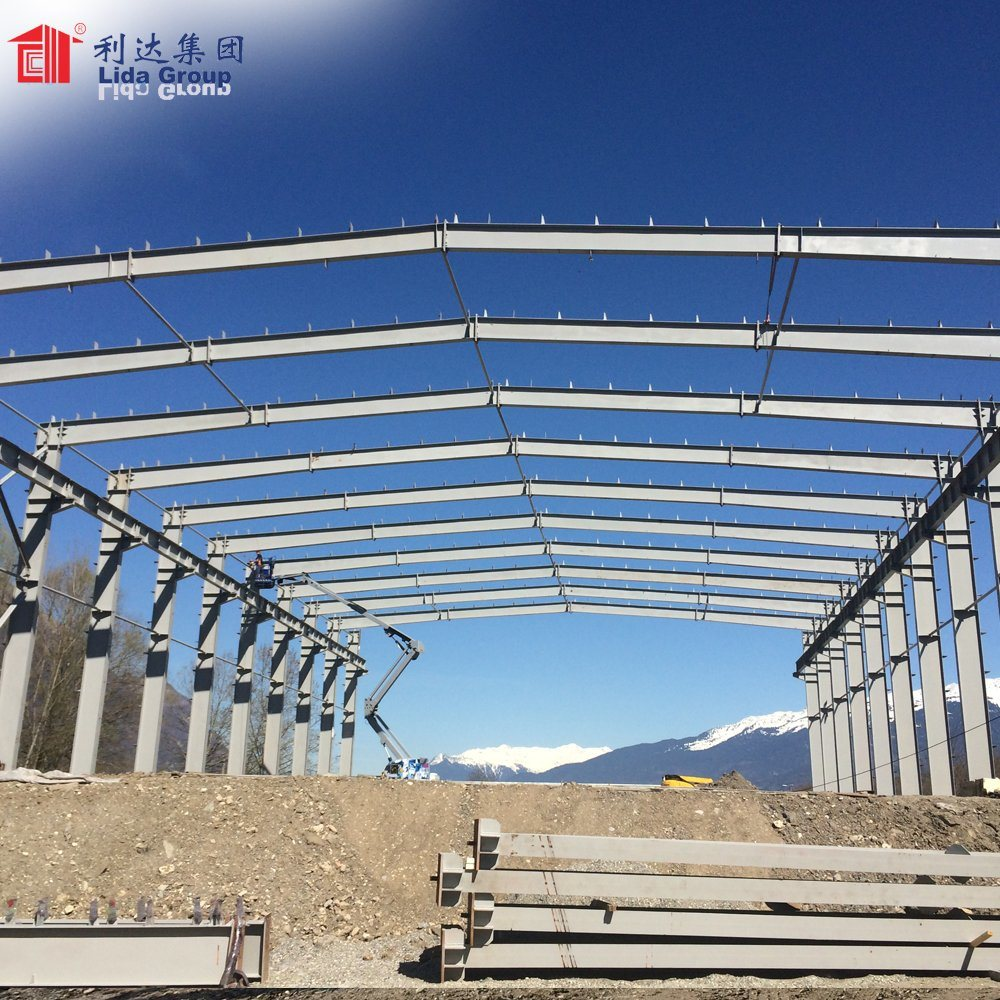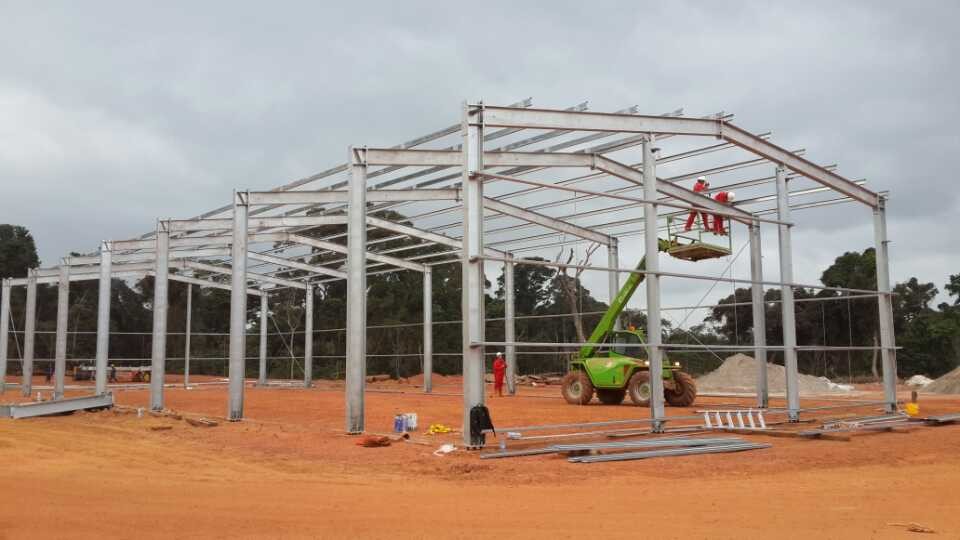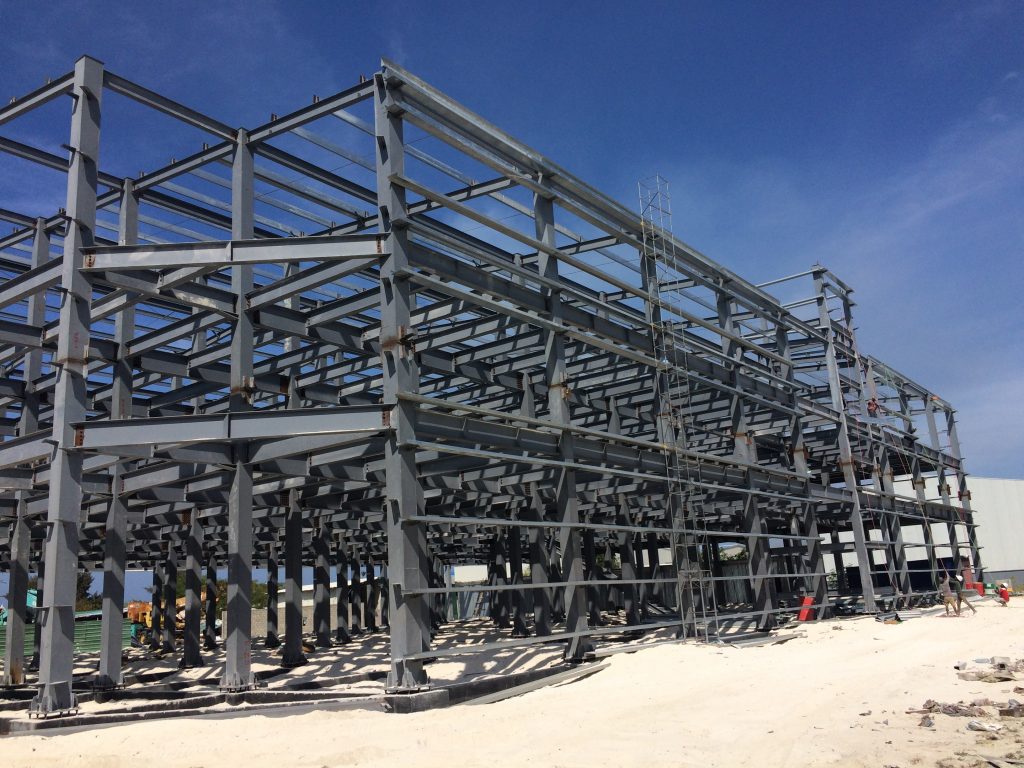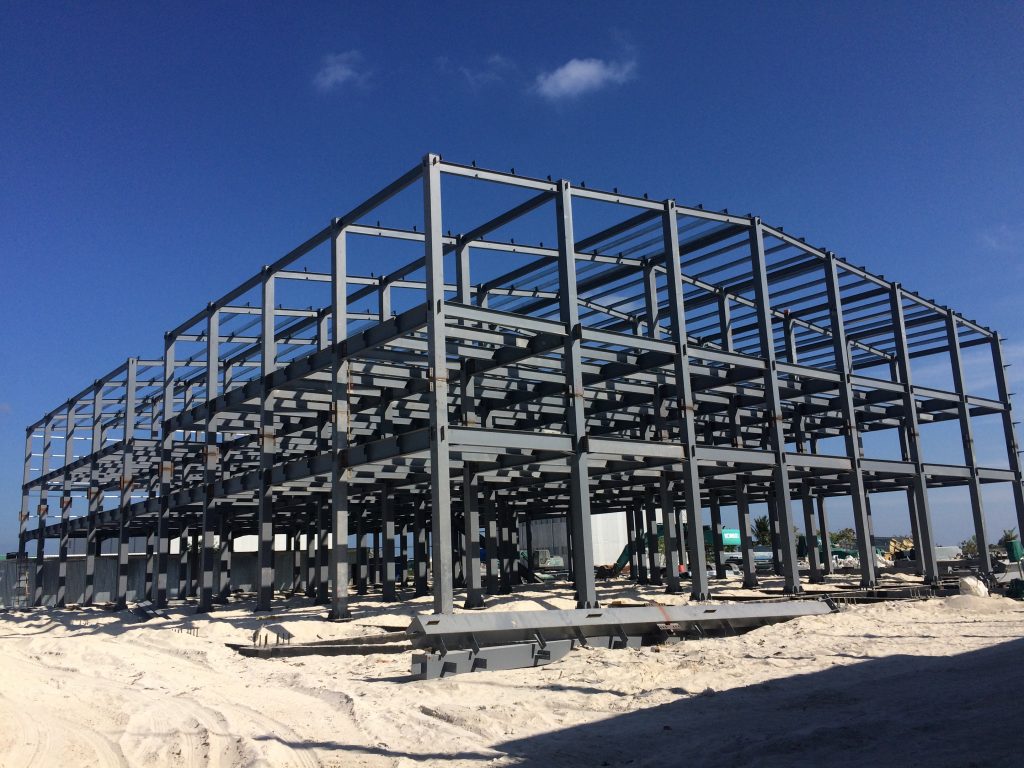Introduction to Lida Group and Its Core Competence
Lida Group, a pioneer in the field of innovative agricultural solutions, has consistently set new standards for excellence and reliability. Established with a vision to revolutionize farming practices through cutting-edge technology, the company specializes in designing and constructing climate-controlled steel farmhouses using modular steel frame technology. This approach not only addresses the diverse needs of modern agriculture but also ensures sustainability and efficiency.
At its core, Lida Group’s strength lies in its commitment to providing customized agricultural solutions tailored to specific climatic conditions and operational requirements. By leveraging advanced engineering techniques and materials, the company creates robust structures that can withstand harsh environmental challenges while optimizing crop growth. The use of modular steel frames allows for rapid assembly and scalability, making it possible to adapt quickly to changing market demands and evolving agricultural practices.
Moreover, Lida Group’s dedication to innovation is reflected in its continuous research and development efforts. The company invests significantly in exploring new technologies and methodologies that enhance productivity and reduce operational costs. This forward-thinking approach positions Lida Group as a leader in the industry, capable of delivering high-quality, sustainable solutions that meet the complex needs of today’s farmers.
In summary, Lida Group’s expertise in climate-controlled steel farmhouses with modular steel frame technology offers unparalleled advantages in terms of durability, flexibility, and cost-effectiveness. These strengths make it an indispensable partner for agricultural enterprises looking to thrive in an increasingly competitive and environmentally conscious world.
The Importance of Climate-Controlled Steel Farmhouses in Modern Agriculture
Climate-controlled steel farmhouses represent a pivotal advancement in modern agriculture, offering numerous benefits that are essential for efficient and sustainable farming operations. One of the primary advantages is their ability to provide a stable and controlled environment for crops and livestock. By maintaining optimal temperature, humidity, and ventilation levels, these structures ensure consistent growing conditions regardless of external weather fluctuations. This stability leads to healthier plants and animals, ultimately resulting in higher yields and better quality produce.
Another significant benefit of climate-controlled steel farmhouses is their enhanced protection against adverse weather events. Traditional farming methods are often at the mercy of unpredictable climates, which can lead to substantial losses due to extreme temperatures, heavy rainfall, or strong winds. In contrast, steel farmhouses are engineered to withstand such elements, safeguarding valuable agricultural assets from potential damage. This resilience translates into reduced risk and greater financial security for farmers.
Furthermore, the use of modular steel frame technology in these farmhouses facilitates easy installation and scalability. Modular components allow for rapid construction and customization, enabling farmers to expand their facilities as needed without disrupting ongoing operations. This adaptability is particularly advantageous in dynamic agricultural sectors where production needs can fluctuate based on market demand or seasonal variations.
Additionally, climate-controlled steel farmhouses contribute to more efficient resource management. Advanced insulation properties help regulate internal temperatures, reducing the need for excessive heating or cooling systems and thereby lowering energy consumption. Efficient water usage and integrated waste management systems further enhance sustainability by minimizing environmental impact and promoting eco-friendly practices.
Lastly, these farmhouses offer improved working conditions for farm staff. Comfortable and well-ventilated interiors create a safer and more productive work environment, leading to increased job satisfaction and overall efficiency. With all these benefits combined, climate-controlled steel farmhouses are indispensable tools for modern farmers seeking to maximize productivity while ensuring long-term sustainability.
Modular Steel Frame Technology: A Breakthrough in Agricultural Construction
Modular steel frame technology represents a transformative leap in agricultural construction, offering unprecedented levels of efficiency, flexibility, and sustainability. At the heart of this innovation lies the modular nature of the steel frames, which are prefabricated off-site and then assembled on location. This method significantly reduces construction time compared to traditional building techniques, allowing farmers to bring their facilities online much faster. The precision-engineered components fit together seamlessly, ensuring a sturdy and reliable structure with minimal on-site adjustments.
One of the key features of modular steel frames is their exceptional structural integrity. Constructed from high-grade steel, these frames provide unparalleled strength and durability, capable of withstanding extreme weather conditions and natural disasters. This robustness not only protects valuable agricultural assets but also extends the lifespan of the buildings, reducing long-term maintenance costs. Additionally, the modular design allows for easy expansion and modification, enabling farmers to adapt their facilities to changing operational needs without extensive reconstruction.
Sustainability is another critical aspect of modular steel frame technology. The use of recycled and recyclable materials minimizes the environmental footprint of the construction process. Furthermore, the energy-efficient designs incorporate advanced insulation and thermal management systems, reducing reliance on artificial heating and cooling. This results in lower energy consumption and operational costs, contributing to a greener and more economically viable agricultural operation.
The versatility of modular steel frames is evident in their application across various agricultural sectors. Whether used for crop cultivation, livestock housing, or storage, these structures can be customized to meet specific functional requirements. For instance, greenhouses equipped with modular steel frames provide ideal environments for year-round plant growth, while livestock barns feature optimized ventilation and temperature control to ensure animal welfare.
Overall, modular steel frame technology redefines the possibilities of agricultural construction, offering a blend of speed, durability, and adaptability that empowers farmers to build resilient and sustainable operations. As the agricultural landscape continues to evolve, this technology stands as a cornerstone for future advancements, ensuring that farms remain both productive and environmentally responsible.
Customization Options Available with Lida Group’s Solutions
Lida Group excels in providing highly customizable agricultural solutions, tailoring each project to meet the unique needs of its clients. Their expertise spans across various dimensions, including size, layout, and additional features, ensuring that every farmhouse is designed with maximum efficiency and functionality in mind.
Firstly, when it comes to size, Lida Group offers flexible options to accommodate any scale of agricultural operation. From small-scale family farms to large commercial enterprises, the company can design and construct farmhouses that fit precisely within available land areas. This scalability ensures that resources are utilized optimally, whether the requirement is for a compact unit or an expansive facility.
Layout customization is another area where Lida Group shines. Understanding that different types of crops and livestock have varying spatial and environmental needs, they develop layouts that promote optimal workflow and productivity. For example, in greenhouse applications, the layout might prioritize sunlight exposure and irrigation systems, while in livestock housing, emphasis is placed on ventilation, feeding stations, and waste management. Each layout is meticulously planned to enhance daily operations and facilitate ease of movement for both workers and machinery.
Additional features play a crucial role in enhancing the functionality of these farmhouses. Lida Group integrates state-of-the-art technologies and amenities to create smart, efficient spaces. This includes automated climate control systems that maintain ideal growing conditions, advanced lighting setups to support photosynthesis, and integrated pest management solutions to protect crops. For livestock facilities, features such as automated feeding and watering systems, real-time health monitoring devices, and comfortable resting areas are incorporated to ensure the well-being of animals.
Moreover, Lida Group pays special attention to sustainability and energy efficiency. Solar panels, rainwater harvesting systems, and energy-efficient insulation are just some of the eco-friendly additions that can be included in the design. These features not only reduce operational costs but also contribute to a farm’s overall sustainability goals.
By offering comprehensive customization options, Lida Group ensures that each agricultural solution is not only tailored to the specific requirements of the client but also optimized for performance and longevity. This level of personalization underscores their commitment to helping farmers achieve success through innovative and adaptable infrastructure.
Case Studies Highlighting Successful Implementations
To illustrate the effectiveness of Lida Group’s customized agricultural solutions, several case studies demonstrate how their climate-controlled steel farmhouses have transformed agricultural operations worldwide.
In one notable example, a medium-sized dairy farm in Europe faced significant challenges with fluctuating temperatures affecting milk production and cattle health. By implementing Lida Group’s modular steel frame technology, the farm constructed a climate-controlled facility designed specifically for dairy cows. The result was a marked improvement in cow comfort and health, leading to a 15% increase in milk yield. The farm also benefited from reduced energy costs due to advanced insulation and automated climate control systems, showcasing the economic and operational advantages of the technology.
Another successful implementation took place on a large-scale vegetable farm in Asia, where inconsistent weather patterns were hindering crop growth. Lida Group designed and built a series of interconnected greenhouses equipped with modular steel frames. These structures provided optimal growing conditions throughout the year, significantly boosting vegetable production. Enhanced ventilation and integrated irrigation systems ensured that crops received the necessary nutrients and moisture, leading to a 20% increase in yield. Moreover, the farm experienced reduced labor costs thanks to automation features like automatic shading and precise temperature regulation.
A third case study involves a poultry farm in Africa that struggled with disease outbreaks and inefficient space utilization. Leveraging Lida Group’s expertise, the farm constructed a new housing system using modular steel frames. The new setup featured advanced biosecurity measures, improved air circulation, and automated feeding systems. These improvements led to a dramatic decrease in disease incidents and a 10% increase in bird growth rates. The modular design allowed the farm to easily expand its capacity as demand grew, demonstrating the scalability and adaptability of the solution.
These examples highlight the broad applicability and effectiveness of Lida Group’s solutions across diverse agricultural settings. Whether addressing issues related to animal welfare, crop productivity, or operational efficiency, their climate-controlled steel farmhouses consistently deliver tangible benefits, positioning them as a trusted partner in modern agriculture.
Future Prospects and Innovations in Agricultural Infrastructure
Looking ahead, the future of agricultural infrastructure promises even more groundbreaking advancements, many of which are being pioneered by companies like Lida Group. One major trend is the integration of smart technologies into farmhouses. Sensors and IoT devices are being deployed to monitor and adjust environmental conditions in real-time, ensuring optimal growing conditions and resource efficiency. This data-driven approach enables farmers to make informed decisions, improving crop yields and reducing waste.
Another promising development is the use of renewable energy sources within agricultural structures. Solar panels, wind turbines, and other green energy solutions are becoming integral parts of farmhouses, reducing reliance on non-renewable resources and decreasing operational costs. Energy storage systems, such as batteries, further enhance sustainability by storing excess energy generated during peak times for later use.
Vertical farming is also gaining traction, especially in urban environments where land availability is limited. By utilizing vertical layers within climate-controlled steel farmhouses, this method maximizes space efficiency and allows for year-round cultivation. Hydroponics and aeroponics systems integrated into these structures enable nutrient-rich, soil-free growing environments, increasing crop density and output.
Robotics and automation are poised to revolutionize agricultural operations, streamlining tasks ranging from planting and harvesting to monitoring and maintenance. Autonomous robots can perform repetitive and labor-intensive jobs with precision, freeing up human workers for more strategic roles. Machine learning algorithms analyze vast amounts of data to optimize farm management practices, predicting issues before they arise and suggesting timely interventions.
Moreover, advancements in material science are expected to introduce lighter yet stronger construction materials, enhancing the durability and portability of farmhouses. These innovations will likely reduce transportation and assembly costs, making high-quality agricultural infrastructure accessible to a broader range of farmers globally.
In conclusion, the convergence of these emerging trends points towards a future where agricultural infrastructure is smarter, more sustainable, and highly efficient. Companies like Lida Group continue to push the boundaries of what is possible, ensuring that farmers are equipped with the tools and technologies needed to thrive in an increasingly complex and demanding industry.
Conclusion and Summary
In conclusion, Lida Group’s pioneering work in developing climate-controlled steel farmhouses with modular steel frame technology marks a significant milestone in modern agriculture. By offering durable, scalable, and customizable solutions, the company addresses the pressing needs of contemporary farmers, who face challenges ranging from unpredictable weather to rising operational costs. The integration of advanced technologies such as IoT, renewable energy, and automation not only enhances productivity but also promotes sustainability, making these farmhouses a cornerstone for future agricultural development.
The advantages of Lida Group’s solutions are manifold: they provide stable growing environments, protect against adverse weather conditions, and offer flexibility for expansion and adaptation. Moreover, the use of eco-friendly materials and energy-efficient designs contributes to reduced environmental impact and lower operational expenses. Through real-world case studies, we’ve seen how these farmhouses have already delivered tangible benefits, including increased yields, improved animal welfare, and streamlined operations.
As the agricultural sector continues to evolve, the importance of innovative infrastructure cannot be overstated. Lida Group’s commitment to research and development ensures that farmers are equipped with the latest tools to thrive in a competitive and environmentally conscious world. By embracing these cutting-edge solutions, agricultural enterprises can look forward to a future characterized by enhanced productivity, sustainability, and resilience.
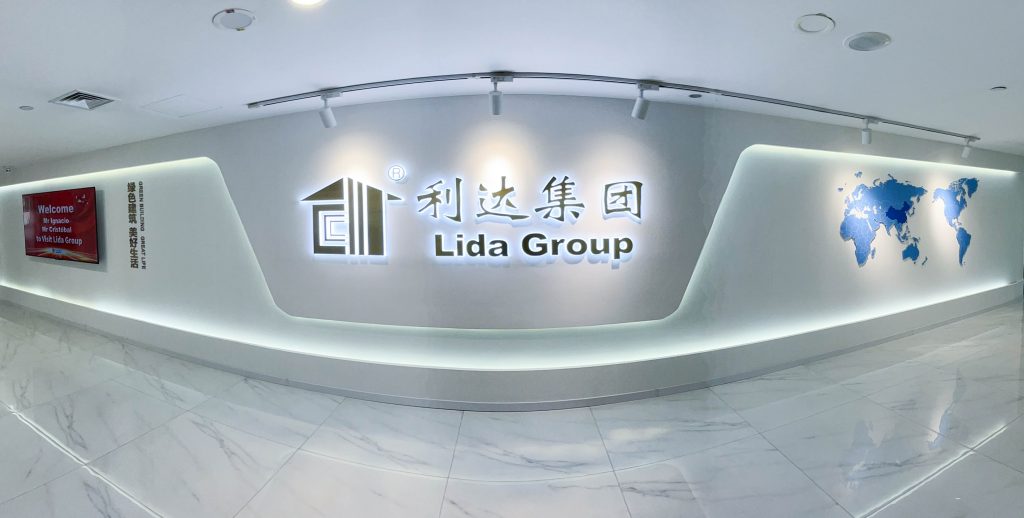
Related news
-
Drone-Surveyed Precision: Lida Group Implements Millimeter-Accurate Steel Structure Construction for Pharma-Grade Warehouses
2025-07-24 10:01:58
-
Lida Group Dominates Emerging Markets with Cost-Optimized Steel Frame Building Kits for Farm House & Warehouse Developers
2025-07-24 09:25:21
-
Lida Group Launches Mobile Prefab House Series Featuring Advanced SANDWICH PANEL HOUSE Technology for Superior Insulation
2025-07-18 17:16:01
contact us
- Tel: +86-532-88966982
- Whatsapp: +86-13793209022
- E-mail: sales@lidajituan.com


